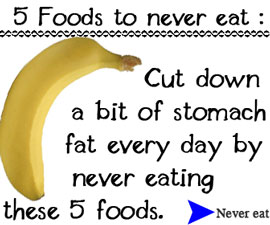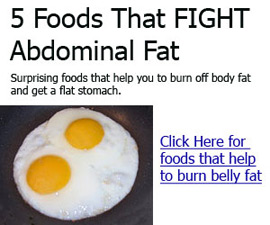In your quest for accurate weight loss information you’ve probably heard lots of advice like eat more fruits and vegetables or eat more whole grains. But does any of that ever register in your diet? Probably not because you have no idea what produce and whole grains have in common.
In one word: fiber. Before you research does fiber make you fat, you should be asking yourself what properties does fiber possess that could make you fat.
Keep reading for more true facts about fiber!
Fiber Fills You Up
The most likely reason that so many dieters mistakenly believe that fiber makes you fat is because fiber leaves you feeling full. With your hunger satisfied your desire to overindulge will decrease. The sense of satiety (fullness or satisfaction) that results from a diet with fiber allows you to lose weight because you eat less.
{One slice of wheat bread satisfies your hunger better than 2 slices of white!}
Many dieters have trouble controlling food urges or stopping themselves when they feel satiated. This could be due to compulsion or an inability to recognize satiety, but a diet that has an adequate amount of fiber can make you feel full so overeating becomes a non-issue, so to speak.
Fiber As Fat Burner
One thing that is true about fiber is that it is a fat burner. This doesn’t mean that fiber on its own is your magical path to weight loss; but a diet with sufficient fiber can give your fat loss the push it needs to help you reach your weight loss goals.
Because fiber is slowly digested by the body, it makes your body work harder to process it and break it down, which causes you to burn more calories during the process. Although there are plenty of good reasons for you to eat more fiber, think of the fat burning properties of fiber as an added bonus in addition to the health benefits of a diet rich in fiber.
Fiber Flushes You Out
One part of dieting that very few of us like to talk about is regular bowel movements. Whether you like to joke about them or pretend none of us experiences them, the truth is that regular bowel movements are essential for successful weight loss.
Bowel movements help you get rid of the unnecessary parts of the food and drinks you consume without sacrificing water and nutrients that your body absorbs.
In addition to regular digestion, fiber helps move cholesterol out of the body, which reduces the risk of heart disease. Certain cancer-causing agents in our intestines get bound to fiber and move quickly through the colon, keeping your risk of colon cancer at bay.
Eat Less, Longer
Foods that contain fiber can help you lose weight by reducing your rate of digestion, which means that your stomach not only feels fuller; it feels fuller for a longer period of time. This has the awesome effect of making you eat less food in between scheduled meals and snacks.
The satisfying nature of fiber can help you create a calorie deficit because many high fiber foods are low in calories. When combined with the reduced rate of digestion, you feel fuller longer and on fewer calories, which is the perfect recipe for fat loss!
Whole Grains Are Packed With Fiber
While many dieters take the view that whole grain products are simply tasteless methods of forcing you to eat healthy, the truth is that whole grains are an essential part of any well balanced diet designed for weight loss…thanks to their fiber content!
One slice of 100% whole wheat bread has 3 grams of fiber, compared to 2 slices of white bread that have just 0.6 grams. This is why many respected dieticians and nutritionists are advocating a diet that includes whole grains over refined grains.
{Use whole wheat pasta to create your favorite Asian-style dish!}
Not only will you feel more satisfied with 1 slice of whole wheat bread, but you’ll be getting more nutrients than from refined grains that have been stripped of much of their nutritional value.
Recommended Fiber Intake
According to the Institutes of Medicine the recommended daily value of fiber for adult men and women range between 21 grams for elderly women and 38 grams for adult men. It is important for all of us, regardless of weight loss goals, to get an adequate amount of fiber in our diets thanks to the many health benefits associated with fiber.
One especially important health benefit of fiber that benefits health and weight loss is its ability to regulate blood sugar levels. Spikes in blood sugar can cue your body to start storing fat, which it will do anyway if not burned by physical activity, but it can also make you fatigued and hungry, so you eat even more food whether you need it or not.
Diets similar to American diets with plenty of processed foods that have little to no fiber will require a small adjustment to a diet with fiber. This is yet another reason that so many belief that fiber makes you fat; starting a diet with the proper amount of fiber can lead to gas as well as other digestive problems.
These problems will only occur for up to a week, until your body gets used to the healthy diet of fiber. Just be sure to drink plenty of water when you add the appropriate amount of fiber to your diet or bloating and constipation will occur.
High Fiber Foods
Now that you know that fiber does not make you fat, it’s time to find healthy ways to get an adequate amount of fiber in your diet.
High fiber foods;
Fruits: Raspberries, pear, apple & strawberries.
Beans: Lentils, black beans & lima beans
Nuts: Sunflower seeds, almonds & pistachios
Vegetables: Artichokes, peas, broccoli, corn & turnip greens
Grains: Whole wheat spaghetti, barley, bran flakes & oatmeal
Give your fat loss efforts a boost by adding these high fiber foods to your shopping list; your health depends on it!
Read our review of Eat Stop Eat to learn how intermittent fasting can help you stop overindulging in processed foods with little nutritional value.















